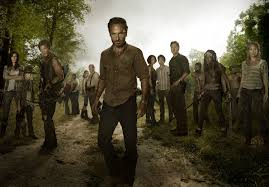 We are close to the Feast of the Resurrection and our celebration of the “One Who Was and Is and Is to Come”. The Book of Revelation calls him the “Faithful Witness” and we are to be faithful witnesses to Him. We cannot in this world we live in seem to be able to come to a conclusion as to what we are witnessing to. Sin as an affront against the majesty of God which Christ died to free us from has now been replaced with the sins of bigotry, non-inclusion, homophobia, racism etc.
We are close to the Feast of the Resurrection and our celebration of the “One Who Was and Is and Is to Come”. The Book of Revelation calls him the “Faithful Witness” and we are to be faithful witnesses to Him. We cannot in this world we live in seem to be able to come to a conclusion as to what we are witnessing to. Sin as an affront against the majesty of God which Christ died to free us from has now been replaced with the sins of bigotry, non-inclusion, homophobia, racism etc.
How we got here is an interesting discussion taken up by Joseph Buttom in a new book called “An Anxious Age: The Post-Protestant Ethic and the Spirit of America”.
Buttom sees our new world as the ultimate product of Walter Raushenbusch’s Social Gospel. Walter Rauschenbusch is known as the father of the Social Concern movement in America. Traditionally, the source of his social ethic has been seen to lie in the single motif of liberalism. Donovan Smucker provides a new perspective, arguing that Rauschenbusch’s social ethic was based on not one but four complementary influences: pietism, sectarianism, liberalism, and transformationism.
In Rauschenbusch’s work pietism, a religion of the heart, was purged of subjectivism while retaining inter-personal compassion; Anabaptist sectarianism provided a Kingdom of God love-ethic without passivity toward the culture; liberalism imparted an openness to the whole community and a powerful, realistic analytic; and the transformationist Christian socialists supplied a case for state intervention while rejecting public ownership as a first principle. Smucker reveals that while the roots of Rauschenbusch’s new paradigm lay to some extent in his personal experiences – his parents’ rejection of the Lutheran perspective for that of the Baptists, his father’s pietism, and his eleven-year pastorate in New York’s Hell’s Kitchen – it was his exposure to the new politics of Henry George and Edward Bellamy, to the Christian socialism of England and Switzerland, and, aided by his knowledge of German and his experiences in Europe, to a wide range of scholarship sensitive to the main social currents of the day that deeply informed his ethic. Smucker also shows how Rauschenbusch drew upon the work of Christian ethicists, historians, and sociologists to support his new pluralistic synthesis. (Donovan E. Smucker in “the Reformed Reader)
According to a review of this book by David Goldman, our society as the result of Rauschenbush’s (who he consistently calls Rauschenberg) theology is a secular world with all the language of redemption and judgment without Christ.
“The Mainline Protestantism that once bestrode American public life never died, but metamorphosed into a secular doctrine of redemption. And that was made possible by the conversion of sin from a personal to a social fact in Walter Rauschenberg’s version of the social gospel. Bottum writes, “The new elite class of America is the old one: America’s Mainline Protestant Christians, in both the glory and the annoyingness of their moral confidence and spiritual certainty. They just stripped out the Christianity along the way.” By redefining sin as social sin, Rauschenberg raised up a new Satan and a new vocabulary of redemption from his snares. According to Bottum, his “central demand is to see social evil as really existing evil— a supernatural force of dark magic.” Jesus, Rauschenbusch wrote, “did in a very real sense bear the weight of the public sins of organized society, and they in turn are causally connected with all private sins.” David Goldman in American Interest.
Buttom tells his story by using examples he calls poster children. They are people that we meet everyday – spiritual but not religious, sanctimonious but never judgmental except towards conservative ideas, the kind of people like to say “don’t know what they want and won’t be happy until they get it”. Here is my favorite Goldman quote –
“But how durable is post-Protestant culture? Missing from Bottum’s portraits of the “poster children” is any mention of the children they are—or aren’t—raising. Fertility rates among members of the secularized Mainline churches are so low (just as they are among “progressive” Jews) that one is tempted to regard post-Protestantism as a one-generation wonder. While the children of the Mainline occupy themselves with yoga, organic gardening and expanded gender identities (Facebook now offers more than fifty categories to choose from), popular culture becomes moribund. The 20th century’s variations of the social gospel seem genteel next to what populates America’s metaphysical realm today. Americans spend more time with supernatural monsters than ever did the Christians of the Middle Ages, from vampires to zombies to demons of every hue. In 2012, the horror genre supplied one out of eight American feature films; a decade ago it was roughly one out of twenty-five. Strip away divine immortality from American spirituality, and it embraces the undead variety.”
Just so…………….

